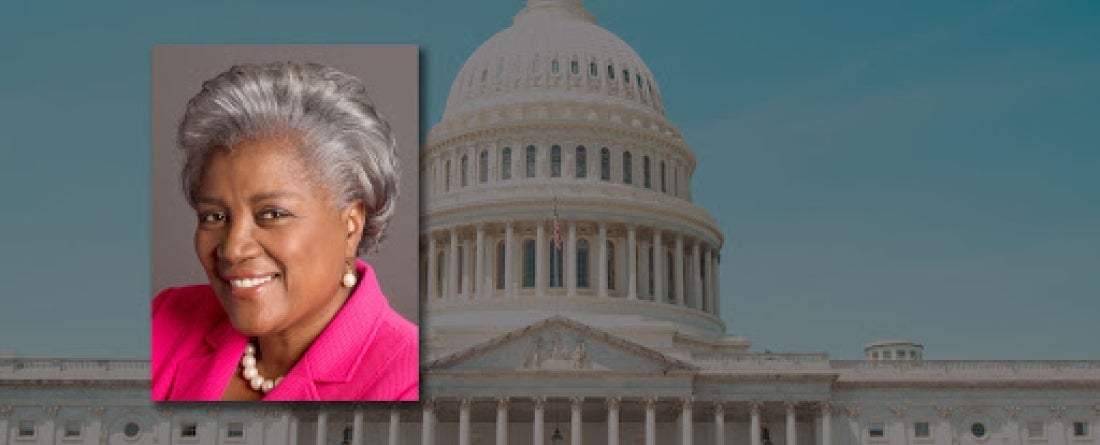
The 2020 election held major milestones for American civil rights: the U.S. gained its first female, African American and Asian American Vice President. Among these firsts, Kamala Harris is also the highest-ranking government official to graduate from a historically black college or university (HBCU).
“She is the living embodiment of everything we fought for so that we could just have a seat of our choice when we got on the bus… There are so many black women who made this day possible,” says Donna Brazille, former Interim Chair of the Democratic National Convention.
Brazile, who spoke with the School of Public Policy community in a webinar on Friday, emphasized the importance of minority voices participating in the electoral process. In particular, Brazile stressed the importance of black female voters’ participation within the election, which ultimately led to the “flipping” of traditionally red states. As a group who have historically been excluded from political discussions and representation, Brazile argues that the inclusion of black women within politics will help to preserve U.S. democracy and promote equality.
“Black women are not just the backbone of the democratic party; we’re the backbone of our democracy. We preserved our democracy,” says Brazile.
However, minority representation within politics is often hindered by policies that promote voter suppression. Brazile noted that people within high-minority communities often need to wait in longer lines and show more forms of identification to vote compared to people living in predominantly white communities. Under the guise of preventing voter fraud, people of color are often disenfranchised and unable to use their political voice. To combat such tactics, Brazile urges everyone to raise their voice to their representatives and expose discriminatory practices within the electoral process.
“Every American must take responsibility to ensure that our democracy, and voting is the lifeblood of our democracy, does not curtail the rights of eligible citizens to vote,” explains Brazile. “We need to ensure that no American is ever denied their voice.”
Brazile ended the conversation with a call to unity and bipartisanship moving forward. She fondly recalled her friendship with former President George W. Bush, a member of the Republican party, and how they were able to collaborate to craft policies addressing the Hurricane Katrina crisis within her home state of Louisiana. By listening and respecting the other’s perspectives, they formulated policies to help Americans in the midst of devastation.
“We all bring a little bit of something extra to the table, and we should be able to appreciate our differences,” Brazile concludes.
About the Black Friday Webinar Series
Black Friday is a webinar series discussing the discounts Black people have been forced to take due to flawed public policy. The series will explore the disparate treatment and impact of public policy in the United States – both historically and to date – on racial outcomes in areas such as housing, education, healthcare, gender identity, criminal justice and wealth. Centuries of federal, state and local policies have cemented systemic racism into our institutions, our culture, and individual's explicit and implicit bias. Through a series of lectures, articles, videos and other educational material, we will demonstrate how the intersection of policy and practice can be used to address chronic issues that exist in Black communities as a result of flawed (or simply absent) policies and practices. As a policy school, we hope that these webinars will educate and inspire conversations in an effort to promote accountability and seek remedy for deficiencies in policies that have disproportionately affected Black people in this country. This series is co-hosted by Executive Development and the DEIB Task Force.



